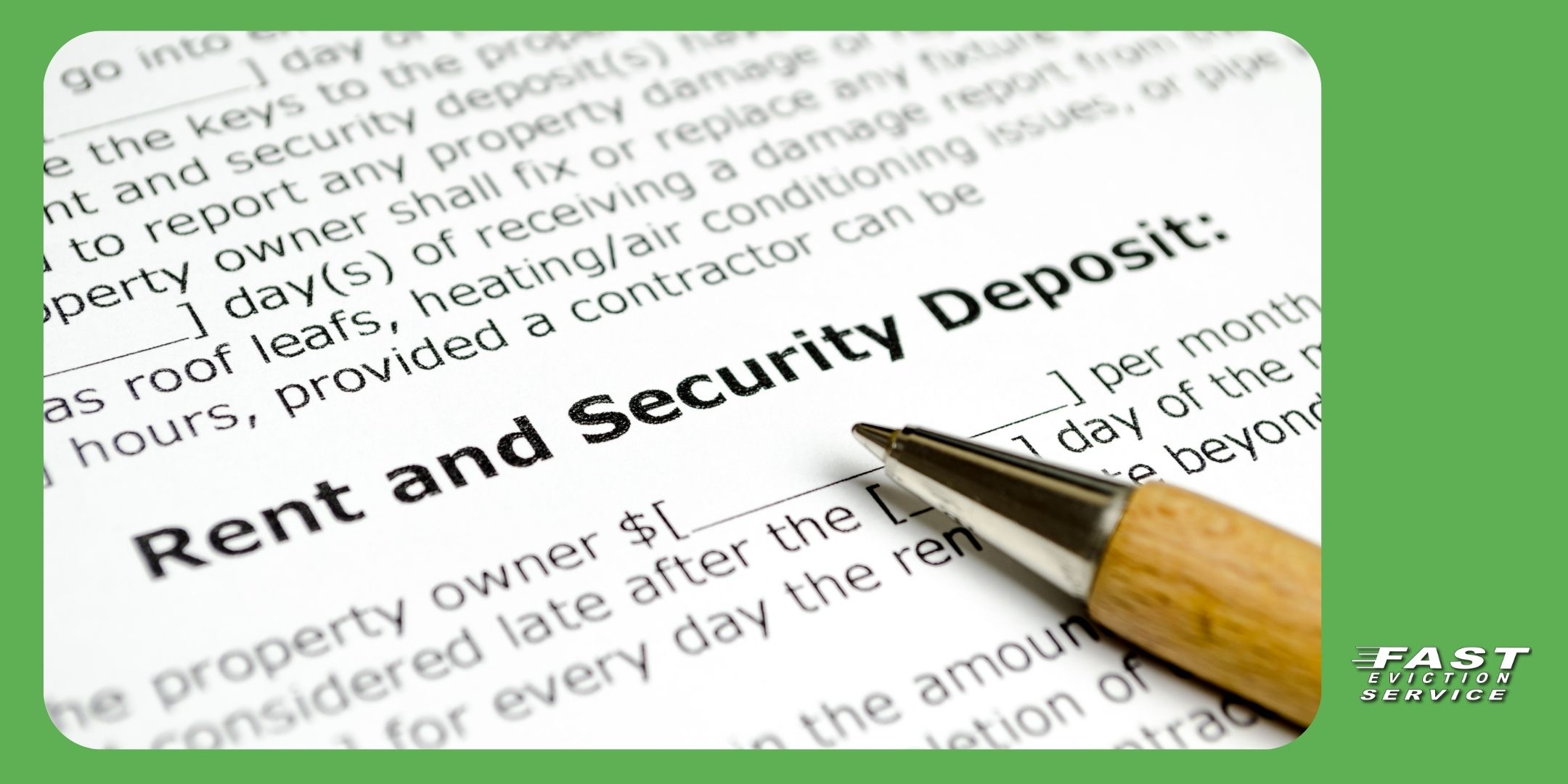Updated 10/25/24
One of the challenges landlords often face is when a tenant moves out without providing a forwarding address. This can create complications, particularly when it comes to returning the security deposit and ensuring that all legal obligations are met. If a tenant refuses to give a forwarding address, landlords may find themselves in a difficult position, unsure of how to handle the situation without risking legal repercussions.

In this article, we’ll explore the steps landlords can take when faced with this problem, with a particular focus on California law. We’ll discuss how to handle the security deposit, manage communication, and protect yourself from potential legal issues.
Why a Forwarding Address Matters
A forwarding address is essential for several reasons, but the most immediate concern for landlords is the return of the tenant’s security deposit. Under California law, landlords are required to provide an itemized statement of any deductions from the deposit within 21 days of the tenant vacating the rental unit. This itemization must include a detailed breakdown of any charges for damages, cleaning, or unpaid rent, with receipts or estimates for repairs that cost $125 or more.
When a tenant refuses to give a forwarding address, it can create a logistical challenge in delivering this information. However, landlords must still meet their legal obligations, regardless of whether the tenant cooperates.
What to Do If the Tenant Refuses to Provide a Forwarding Address
If a tenant moves out or is evicted and does not provide a forwarding address, landlords should follow these steps to stay compliant with legal requirements and avoid potential disputes:
Send the Security Deposit Itemization to the Last Known Address
The first step is to send the required security deposit itemization to the tenant’s last known address, which is typically the recently vacated rental unit. Under California law, this fulfills your obligation to provide the documentation, even if the tenant has not shared their new address.
If the tenant has filed a change of address with the postal service, the letter will be forwarded to their new residence. If the tenant has not updated their address, and the letter is returned as undeliverable, retain the returned mail as evidence that you attempted to fulfill your legal duty.
This process ensures that you’ve acted in good faith and taken the necessary steps to comply with the law, even when a tenant refuses to give a forwarding address.
Keep Detailed Records of All Communications and Attempts
Documentation is critical when dealing with any tenant dispute. Keep a detailed record of all communication attempts, including phone calls, emails, and letters. If a tenant refuses to provide a forwarding address, note the dates and details of each attempt to request the information.
Should the case escalate to a legal dispute over the security deposit or other matters, having these records can protect you as a landlord by demonstrating that you made reasonable efforts to comply with the law. Courts will often consider the landlord’s efforts to follow proper procedures, even if the tenant was uncooperative.
Retain the Security Deposit for the Legal Timeframe
While the law mandates that landlords must return the deposit or provide an itemization within 21 days, if you are unable to deliver it due to a tenant refusing to give a forwarding address, keep the deposit in a separate account for safekeeping. Do not assume that you can simply keep the deposit without proper documentation or justification.
In the event the tenant contacts you at a later date, you can promptly provide the itemization or return any remaining balance. This proactive approach protects you from potential legal challenges, such as claims that you wrongfully withheld the deposit.
Be Cautious of Potential Legal Action
Failure to comply with California’s strict security deposit regulations can lead to legal consequences for landlords. If a tenant does not receive their security deposit statement within the required timeframe, they could take legal action. California law allows tenants to sue for up to twice the amount of the security deposit if the landlord is found to have wrongfully withheld it.
However, courts are typically more lenient toward landlords who have made reasonable efforts to comply with the law, even if a tenant refuses to give a forwarding address. As long as you have sent the itemization to the last known address and kept detailed records of your attempts to fulfill your obligations, you should be able to defend yourself if a dispute arises.
Managing Tenant Relationships and Future Precautions
Dealing with a tenant who refuses to provide a forwarding address can be frustrating, but it’s important to approach the situation professionally and calmly. Here are a few strategies to avoid this issue in the future:
Collect the Forwarding Address Early
One proactive step landlords can take is to request the tenant’s forwarding address before they vacate the property. Including this request as part of your move-out checklist or within your lease agreement can help ensure you have the necessary information when the time comes to return the security deposit.
Include a Clause in the Lease Agreement
Some landlords include a clause in their lease agreements that requires tenants to provide a forwarding address upon move-out. While it’s not foolproof, having this expectation clearly outlined in writing can help set the tone for a smoother transition and encourage cooperation from tenants.
Build a Positive Relationship with Tenants
A good relationship with tenants can prevent many potential conflicts, including issues with providing a forwarding address. By maintaining open communication and fostering a respectful relationship, you can make it more likely that tenants will cooperate with move-out procedures.
As a landlord, dealing with a situation where a tenant refuses to give a forwarding address can be challenging, especially when it comes to fulfilling your legal obligations. However, by sending the security deposit itemization to the last known address, keeping detailed records, and being prepared for potential legal action, you can protect yourself from liability.
Additionally, adopting proactive strategies such as requesting the forwarding address before move-out and maintaining strong tenant relationships can help avoid similar issues in the future. Ultimately, following these steps will ensure that you stay compliant with the law and minimize the risk of disputes with tenants, even in difficult situations.






